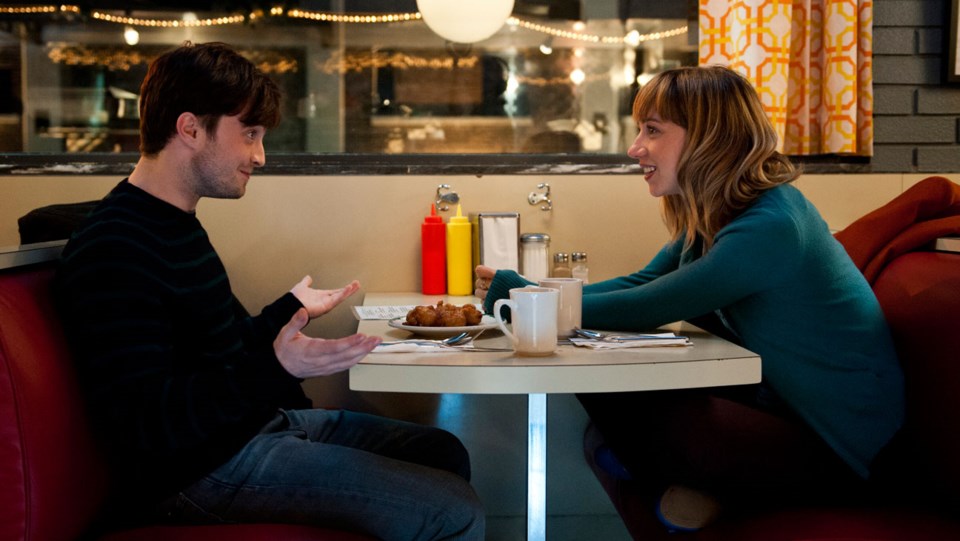Given that The F Word has had its name changed stateside to What If, undergone overdubs to further ease the ratings board’s moral indignation (apparently “masturbating in a kitchen” is far less offensive than “masturbating on a kitten”) and reshot scenes since its 2013 TIFF premiere, it’s not surprising that director Michael Dowse (Goon) and Vancouver-raised screenwriter Elan Mastai can readily catalogue the various other iterations of their romantic comedy (which hits screens Friday).
For instance, one “what if” would’ve seen the story set in Vancouver, which would’ve been fitting given that the source material is a Fringe play that Mastai caught in a Granville Street bar. “I believe that’s where Angels in America began as well,” he quips while seated across from Dowse in a downtown hotel. And while subsequent drafts relocated the story (and Mastai) to Toronto, the plot travelled extremely well. As Mastai asserts, “When you’re young and in love, every city is Paris.”
The would-be lovers in this case are Wallace (Daniel Radcliffe), a med school dropout, and Chantry (Zoe Kazan), an animator who’s already in a committed relationship. Able to bring out the weirdest in one another with just a few digressions, they commit themselves to giving friendship a go. And while The F Word undeniably takes a few pages from When Harry Met Sally..., it’s founded in Mastai’s own observations and obsessions.
“We say ‘just friends’ but to me, the ‘just’ part is what’s interesting,” he remarks. “You can have an intense relationship that’s over in two weeks or you can have a friendship that lasts your entire life. But we carry this sense that romance trumps friendship. I was interested in mucking around in the messiness of male/female relationships.”
This, of course, required a lead actor willing to get dirty in terms of both morally dubious dilemmas and MPAA-baiting dialogue. Were they surprised to find their man in the former boy wizard?
“Yup,” admits Dowse. “But after meeting him, you really get a sense of how funny he is.”
Radcliffe’s deadpan, self-deprecating approach undeniably benefits from a script well-stocked with witty conversational banter. As Mastai explains, “To me, the funniest joke in the world is a joke you have with your best friend that maybe no one else gets. We wanted to create that sense that you’re sitting and watching some of your funniest friends riffing. I’m really proud of the dynamic we captured.”
Likewise, both Dowse and Mastai were pleased to have committed some of the writer’s favourite haunts in his adopted home – be it the coffee shop where he reworked the script or the Lake Ontario beach that reminds him of Vancouver – to the big screen. As Dowse says, “I think one of the cornerstones of these romantic comedies is that they use their locations almost like a character.”
“I feel that specificity makes everything more universal,” adds Mastai. “The more specific the sense of humour, the more specific the characters, the more specific the environment... It actually makes it all the more universal because none of us live in an anonymous every-city and talk in a stylized banter that doesn’t make specific reference to anything anywhere. We don’t live vaguely, we live specifically.”
It’s plainly apparent that both men have a legitimate affection for the often maligned rom-com genre. Ultimately, their enthusiasm proves infectious. You legitimately care about Wallace and Chantry, value their relationship and grow trepidatious about them threatening it with romance. And damn it if the grand romantic gestures don’t strike a chord.
“I think you earn the sincerity by letting the audience know that you’re not going to be indulgent,” suggests Mastai. “When we get to the more sincere moments, I think we did the hard work of making the audience fall in love with the characters.”


